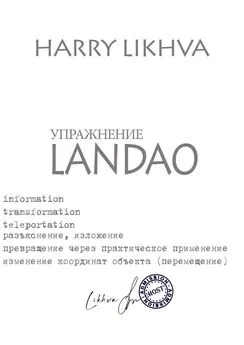Harry Turtledove - Give me back my Legions!
- Название:Give me back my Legions!
- Автор:
- Жанр:
- Издательство:неизвестно
- Год:неизвестен
- ISBN:нет данных
- Рейтинг:
- Избранное:Добавить в избранное
-
Отзывы:
-
Ваша оценка:
Harry Turtledove - Give me back my Legions! краткое содержание
Give me back my Legions! - читать онлайн бесплатно полную версию (весь текст целиком)
Интервал:
Закладка:
Augustus sipped from his wine. It was watered more than Varus enjoyed; Augustus had always been a temperate man. “You did well in Syria,” he said as he set down the cup.
“Thank you very much, sir. It’s a rich province.” Varus had been staggered to discover how rich Syria was. Places like that showed him Italy was only a new land. Rome claimed to have been founded 760 years earlier, but it had been a prominent place for only three centuries. Some of the Syrian towns went back thousands of years - long before the Trojan War. And the wealth they held! Varus went into Syria poor and came out prosperous without being especially corrupt.
“You did so well there, in fact, that I’ve got another province for you,” Augustus said.
“Sir?” Varus leaned forward. He had all he could do not to show too much of his excitement. After you’d been governor of Syria, where could you go? Achaea? It wasn’t so rich as Syria, but it held more cachet than any other province. It was under senatorial administration, not formally Augustus’ to control, but if he asked the Conscript Fathers to honor his kinsman by marriage, how could they say no?
Or maybe Egypt! Egypt belonged to Augustus - he wouldn’t dream of letting the Senators get their hands on the place. Egypt made Syria seem poor by comparison. If you served as Augustal prefect in Egypt, you were set for life, and so were all your heirs.
“Yes.” The ruler of the Roman world leaned forward, too. “Germany,” he said.
“Germany?” Varus hoped his disappointment didn’t show. He’d been thinking of civilized places, comfortable places, places where a man could enjoy himself, could live. “It’s a long way from . . . well, everywhere, sir.” That was as much of a protest as Varus would allow himself.
“I know it is. And I know it will be a bit of a shock after Syria.” No, Augustus was nobody’s fool. When he was very young, Antony made the fatal mistake of underestimating him. Everyone who made that mistake was sorry afterwards, but afterwards was commonly too late. Of course Augustus would have a good idea of what Varus was thinking right now. “I’m sorry,” he said. “I am sorry, but I need someone I can trust there. It just hasn’t shaped up the way I wish it would have.”
“I’ll do my best, sir, if that’s what you want,” Varus said. Gods! How will I tell Claudia? he wondered. The fit she’d throw would make facing overgrown blond savages seem delightful. It also made him give evasion another try: “Shouldn’t you perhaps think of someone with, ah, more military experience?”
“I’d send Tiberius, but he’s busy putting down the uprising in Pannonia,” Augustus replied. “He’s finally getting somewhere, too. Why the Pannonians couldn’t see they’d be better off under Roman rule . . . But they couldn’t, and so he has to show them.”
“I’m glad to hear he’s doing well,” Varus said. He wished Tiberius were doing better still, so he could deal with the Germans. Plainly, though, that wouldn’t happen. Which meant Varus was stuck with it. Which meant he had to make the best of it. If there was any best to be made.
“When my father conquered Gaul, he did it in one campaign, and the conquest stuck,” Augustus said fretfully. He was Julius Caesar’s sister’s grandson. But he was also Caesar’s heir and adopted son, and he’d taken advantage of that for more than half a century now. The comparison still had to weigh on him, though, for he went on, “I’ve been sending armies into Germany the past twenty years. They mostly win when they fight the Germans, but the country isn’t subdued yet. And it needs to be. A frontier that runs from the Elbe to the Danube is much shorter and easier to garrison and cheaper to maintain than the one we’ve got now, on the Rhine and the Danube. I could hold it with far fewer soldiers.”
“Yes, sir.” Varus suspected Augustus had got to the root of things right there. Augustus had been cutting the army down to size ever since winning supreme power. Paying soldiers was the most expensive thing the Roman government did. A shorter frontier would mean he didn’t have to pay so many of them.
“Besides,” Augustus added, “the Germans are a pack of troublemakers. They sneak over the Rhine and raid Gaul. They helped stir up the Pannonian rebels - they’ve given them aid and comfort, too. I want them suppressed. It’s about time. We’ve played games with them for too cursed long.”
A cold wind seemed to blow through the little room. You’ll answer for it if you don’t suppress them. Augustus didn’t say that, but Varus knew he meant it. The ruler of the Roman world rewarded success. He punished failure, failure of every kind. His own daughter Julia had languished on a hot, miserable island for years because of infidelity and vice. No, he didn’t fancy people who couldn’t live up to what he expected of them.
Licking his lips, Varus asked, “What kind of force will I have to bring the Germans into line?”
“Three legions,” Augustus answered. “The XVII, the XVIII, and the XIX. They’re all solid outfits. I’d give you even more if Tiberius didn’t have a full-sized war on his hands. But three should be plenty for the job. We have made progress in Germany. We just haven’t made enough.”
“Three legions!” Varus echoed. After Augustus’ cuts, there were only thirty all through the Empire. Excitement coursed through the younger man. He would command close to twenty thousand elite soldiers. Once he pacified Germany, people might not think of him in the same breath as Julius Caesar, but they would remember him. They’d remember him forever. He inclined his head to his wife’s great-uncle. “I won’t let you down, sir.”
“I wouldn’t give you the men if I thought you would,” Augustus said.
Arminius led half a cohort of German auxiliaries down a trail in western Pannonia. A town called Poetovio lay not far away. The Roman legion to which his Germans were attached had retaken it from the Pannonian rebels a few days before. Deserters from the enemy said the Pannonians wanted to take it back; their warriors still prowled the neighborhood.
“Keep your eyes open!” Arminius called in his own guttural language. “We don’t want these barbarians giving us a nasty surprise.”
Some of the Germans chuckled. As far as the Romans were concerned, they were even more barbarous than the Pannonians. But they’d taken service with Rome. Why not? Augustus was a good paymaster. The Pannonian rebels weren’t, which meant that few Germans had gone over to them.
One of the soldiers said, “Nothing to fear in open woods like these. The rebels couldn’t set up a proper ambush even if they wanted to.”
“Keep your eyes open anyway,” Arminius answered. The other German nodded, but it was the kind of nod a man gave a chief he was humoring. Arminius recognized it; he’d used that kind of nod often enough himself.
And the other warrior had reason enough to use it here. By German standards, these woods were open. Pannonia lay south of the Danube and also well to the east of the lands of the Cherusci, Arminius’ tribe. It was warmer, drier country than he was used to. Woods here were full of oak and ash and other broad-leafed trees. They were nothing like the dark forests of Germany, with pines and spruces growing close together, with a formidable understory of bushes and ferns, and marshes and swamps and bogs ready to swallow up a traveler unwary enough to wander off the track.
Rome had pushed her border up to the Danube in these parts only a generation earlier: not long after the legions reached the Rhine. Tidy, thrifty Augustus wanted to push east to the Elbe, which would shorten the frontier by hundreds of miles and let him use fewer legions to garrison it. The Pannonians hadn’t much minded at first, not till they saw that permanent occupation went hand in hand with higher taxes than they’d ever known - till they discovered they were enslaved, in other words. Then they rose under two men named Bato and a third called Pinnes. They’d put up a good fight, but the Romans were wearing them down at last.
Augustus aimed to enslave Germany, too. The German tribes hadn’t yielded as much as the Pannonians had before they rebelled. They loved their freedom, Germans did. Even so, quite a few of them would have welcomed slavery if it came with wine and silver drinking cups and gold coins to make them feel important.
And, obviously, quite a few of them took service in the Roman auxiliaries. Some sought adventure. Some wanted to bring silver back to Germany when they went home. And some didn’t aim to go home, but to win Roman citizenship after twenty years of service and to settle inside the Empire.
Most of the Germans with Arminius were dressed Roman-style. He was himself: he wore hobnailed caligae on his feet; a jingling mailshirt covered by a knee-length wool cloak; and an iron helmet whose crest, which ran from ear to ear rather than front to back, showed him to be an officer. Which he was, and a chief’s son to boot. The troopers he commanded had on cheap bronze versions of the standard legionary helmet. They carried oval shields like his, which covered less of them than the ones the Romans used themselves.
Their weapons, though, were the ones they’d brought from Germany. They all carried spears, longer and stouter than the javelins Roman soldiers used. German spears were good for thrusting as well as throwing. And German swords, made for slashing, were half again as long as the stubby thrusting-swords the legionaries preferred. Since Germans ran at least a palm’s breadth taller than Romans and had correspondingly longer arms, they had more reach with their blades than legionaries did.
But Roman soldiers could do wicked work with those gladii of theirs. Arminius had seen as much in this campaign against the Pannonian rebels, and before that in clashes with the Romans inside Germany. His own folk, who fought to show off each warrior’s individual bravery, often mocked the Romans for slavish obedience to their officers. They were no cowards, though. Arminius had also seen that for himself.
And, because they worked so well together, the Romans could do things in war that his own folk could not. Germans who hadn’t come into the Empire had no idea how vast it was or how smoothly it ran. Arminius had signed up as an auxiliary to learn the Romans’ tricks of the trade, so to speak, and bring what he could back to Germany. He’d got more of a military education than he’d dreamt of before he left the forests of his homeland, too.
The Pannonians had also learned the Roman style of fighting - they’d made a point of it, in fact. When Arminius and his followers came out of the woods and looked across the rolling meadow beyond, he saw a few scrawny sheep grazing on the lush summer grass and, beyond them, a knot of eighty or a hundred men in chainmail and cloaks and helmets. He peered at them, frowning. Were they legionaries and allies, or Pannonians and enemies? It wasn’t easy to tell at first glance.
They seemed in no doubt about his men. They started away from the Germans as fast as they could go. In their commander’s caligae, Arminius would have done the same thing: his force outnumbered theirs by about two to one.
“After them, boys!” he yelled. “Good fighting, good looting!” The auxiliaries raised a cheer and swarmed across the broad meadow after the Pannonians.
And then, about a quarter of a mile to the south, a force of legionaries about the size of his also emerged from the woods. They were the outliers of the legion to which Arminius’ auxiliaries were attached. As soon as the Roman soldiers spotted the Pannonians, they also cheered and began to pursue. One of their officers waved to the Germans, as if to make sure his force and theirs were on the same side.
Читать дальшеИнтервал:
Закладка:







